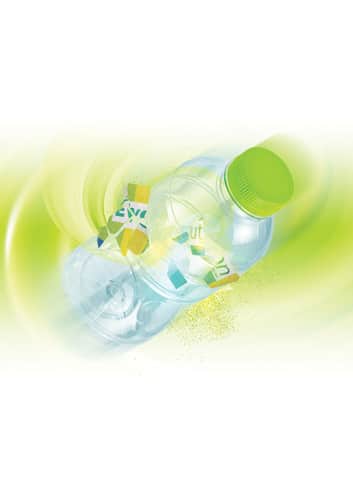Alongside quality and speed, sustainability has remained at the top of the packaging and label agenda. Therefore, recyclability has emerged as an essential area of focus.
Increasing consumer awareness
Consumers are increasingly aware of their ecological footprint, which is witnessed through study data. A survey conducted by research firm McKinsey notes that more than 60% of shoppers would pay a premium for products packaged in more sustainable packaging. Further, McKinsey reports that products aligned with clear ESG (Environmental and Social Governance) claims averaged a higher cumulative growth figure than those with no such claims.
Sustainably designed packaging is here to stay
The message for brands and their packaging partners is clear: sustainably designed packaging is here to stay. In particular, the focus will be on circularity and recyclability. There is an evident drive towards reducing the reliance on virgin materials in all aspects of packaging and label design. Some of the world’s largest food and beverage brands have invested in new material technologies and designs that focus on packaging recyclability.
Global legislation is also powering the drive towards a closed-loop packaging economy. For example, the European Union’s Plastic Tax, introduced as part of the EU Green Deal, imposes a levy on non-recyclable plastic packaging waste calculated by weight. The fees are charged to member states and recharged to the contributing businesses as additional taxation. A similar focus can be seen in the UK, which has introduced a Plastic Packaging Tax, charging businesses additional costs for plastic packaging that contains less than 30% recycled material.
Volume demand and recycling rate
However, the push towards greater use of recycled materials comes with additional challenges, such as ensuring there is enough recyclate feedstock to meet high volume demand. The industry witnessed this challenge in 2022, as demand for post-consumer recyclate outstripped supply. Data from Eurostat shows that between 2010 and 2020, the amount of packaging waste generated per capita increased by 23%. However, in 2020, only 38% of plastic packaging waste throughout the EU was recycled. While the international recycling infrastructure has seen considerable investment, work remains in connecting the dots for a more fluid and connected circular economy.
Inks and coatings in recycling processes
As the world looks to further close the loop in packaging and reduce the overall reliance on virgin materials, inks and coatings play an essential part. Historically, the choice of printed inks could impact the recyclability of plastic packaging. In one example, the caustic bath phase of the recycling process could cause bleeding of conventional inks, discolouring the wash solution and contaminating the plastic.
Deinking primer and caustic resistant varnish
In view of the problem with inks and coatings in recycling processes, Flint Group developed their Evolution range for the packaging market. It consists of the Evolution deinking primer and the Evolution caustic resistant overprint varnish (OPV). These products are designed to increase the yield of material reclaimed from the recycling process by increasing the overall availability of material that can be remade into new packaging.
The Evolution OPV is a transparent varnish applied to pressure-sensitive film labels and flexible packaging substrates to protect the ink during the caustic wash, which keeps the ink securely fixed to the substrate, avoiding the bleeding, abrasion and contamination that takes plastic out of the recycling loop. Since recycled PET material is only valuable when free of stains, haze or discolouration, it’s easy to see how Evolution OPV has significant implications for packaging circularity.
This product has received recognition from the USA Association of Plastic Recyclers and adheres to their Critical Guidance Protocol for Clear PET Articles with labels and closures. The European version of the varnish is also food contact material approved. Several trials have proven its performance using multiple substrates, including PE, PP, and top-coated materials. No contamination was recorded in any testing, verifying that the varnish is suitable for use with food-contact plastic.
The Evolution deinking primer prevents inks on shrink sleeves from contaminating recycling streams during the recycling process. The innovation, when used with a crystallisable shrink sleeves and Flint Group’s Ancora low-migration food packaging and label inks, enables the deinking of sleeve materials during the washing process.
The innovation is deceptively simple in concept and ensures shrink sleeves can be recycled along with the bottle, thereby increasing the yield of commercially viable recycled material. Therefore, the Evolution range represents another leap towards achieving a circular packaging economy.
